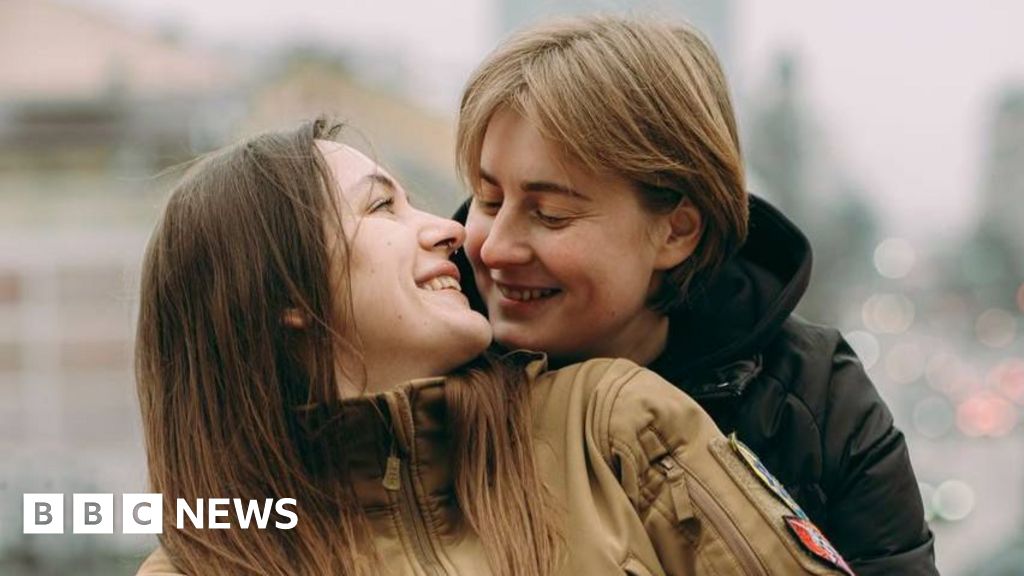30 minutes agoBy Jean Mackenzie, BBC News, reporting from Kyiv
One corner of Kyiv’s symbolic central square is now covered in thousands of tiny blue and yellow flags, in tribute to Ukraine’s fallen soldiers. Earlier this month, a group of activists gathered to add a different type of flag to the growing collection. They had unicorns in their center, representing each gay soldier who had been killed in the war.
The deaths of LGBT soldiers in Ukraine have highlighted an inequality. They do not have the same rights as heterosexual troops. Gay marriage is illegal, meaning when these soldiers are killed, their partners do not have the right to decide what happens to their bodies, nor are they entitled to state support.
Rodion, a 30-year-old costume designer, came to place a flag in honor of his former boyfriend Roman, who was killed in the early months of the invasion. Roman and five others from his brigade died in a missile attack near Kupiansk, close to Kharkiv, after a local family leaked their position to the Russians.
Attitudes towards LGBT rights have shifted over the past decade in Ukraine, but many still hold socially conservative and homophobic views. The presence of openly gay soldiers fighting and dying on the front line has challenged these prejudices, but meaningful change is slow to come.
Mariya Volya, a soldier defending her hometown of Mariupol, decided to come out as gay after nearly dying in 2022. She faced backlash and harassment, but still continues to serve her country. She attended the first Pride march in Kyiv since the invasion, alongside her fiancée Diana.
The Pride march was attended by about a dozen LGBT soldiers, who were given permission by their commanders to participate. This marked a significant shift from previous years, where such an event would have been unthinkable.
The fight for equality for LGBT soldiers in Ukraine is ongoing, with challenges both on the front lines and in parliament. The bill to allow civil partnerships for same-sex couples has been stalled, facing opposition from conservative MPs and church leaders.
Despite the obstacles, LGBT soldiers and activists continue to push for change, hoping that one day they will have the same rights and recognition as their heterosexual counterparts.

